This past April, the Boston Marathon attracted more than 32,000 runners and approximately half a million spectators. With such a huge crowd on hand, it’s easy to think that the athletes’ major source of support comes from fans of the sport. More than a million people annually run marathon races, and most of them have a team of people behind them.
Marathoners rely on the strengths of a community of people. Families, coaches, marathon volunteers, race directors and health professionals dedicate time and energy to the runners’ dreams. And each group protects the health of the athletes in a different way. These unsung heroes make the impossible possible and they do it because the sport of long-distance running is a community endeavour.
Families lay the foundation; research found that partners are “strikingly co-operative” as the non-running partner often picks up chores and child care uncomplainingly because they believe in the end goal. And a [2023 New York Times] article reported that athletes reciprocate by giving their partner recreational time.
Running is a lifestyle
When a family member is training to complete a marathon, families recognize there is safety in sticking together. Registered dietitian Kristy Baumann, owner of Marathon Nutritionist in Minneapolis-St. Paul, Minn., has run 13 marathons. She describes how her mother would accompany her when she trained for hours.
“My mom would bike with me on my long runs,” she says.
In a 2015 article for Runner’s World, runner Courtney Crandell described how her family made sure she ate, maintained her health insurance and had a ride home after the race.
Long-distance running draws people together who are not family. Coaches get to know their runners intimately and can prevent racers from ending up in dangerous situations. For example, Molly Monk, an athlete with unpredictable blood pressure, relied on her coach to help her train so that she avoided passing out during the marathon.
Preparing physically and mentally
Andy Jones-Wilkins, an American endurance running coach and writer, takes pride in being able to train marathon racers for four to six months because he values his relationships with runners. Jones-Wilkins, 57, is currently coaching 24 athletes scattered across the U.S.
“My job as a coach is to give them not just the physical but also the mental and emotional tools to not just prepare for the race but to execute and to finish,” he says.
Jones-Wilkins stays in contact with his athletes to debrief and to discuss with them the next step forward, particularly if they were disappointed on race day.
Thirty-four years of long-distance running has taught Jones-Wilkins who the true unsung heroes are: “The people who put on these events (race directors) are the heart and soul of this sport.”
(AP Photo/Mary Schwalm)
Supporting runners
Jones-Wilkins’ admiration for race directors led him to write “The Race Director Chronicles,” an online series profiling different race directors. He says they are often unpaid, deal with thousands of race details and invariably face negative feedback. He particularly admires the talent these individuals have for networking.
Long-distance running brings together introverts and extroverts. Tim Bradley is one of those extroverts. A volunteer co-ordinator specializing in running events in Los Angeles, he works 11 races a year and also created a volunteer registration platform to help other volunteer co-ordinators: “I can’t think of other sports that recruit so many volunteers and are so dependent on them.”
He typically starts recruitment four months before a race and registers 4,000 volunteers in preparation for race day. Volunteer responsibilities include raising funds, registering runners, building spectator stands, operating refreshment stations, regulating traffic, offering first aid, tracking and publishing results and cleaning up.
Volunteers at major races go beyond first aid, and prepare volunteers to treat dehydration, heat stroke, low sodium levels and orthopedic injuries. They also provide a sweep medical bus to pick up runners who cannot finish the race.
More than the run
Sometimes the most important role a person can play in a marathon runner’s life is to tell them when there’s a higher priority requiring attention than the marathon itself. As a dietitian, Baumann says she encounters young women who struggle with nutrition issues that come to light when they start to train.
“My job is twofold: helping people fuel for performance, feel their best and finish their race strong but also a lot that comes with it for many people is healing their relationship with food,” she says.
Marathons get their name from the Greek legend of the messenger Pheidippides, who ran 40 kilometres from the town of Marathon to Athens to announce Greece’s victory over Persia in a battle on the plain of Marathon.
Today a marathon runner’s successful finish is celebrated by many people who love the sport of long-distance running because its message is that solidarity wins.
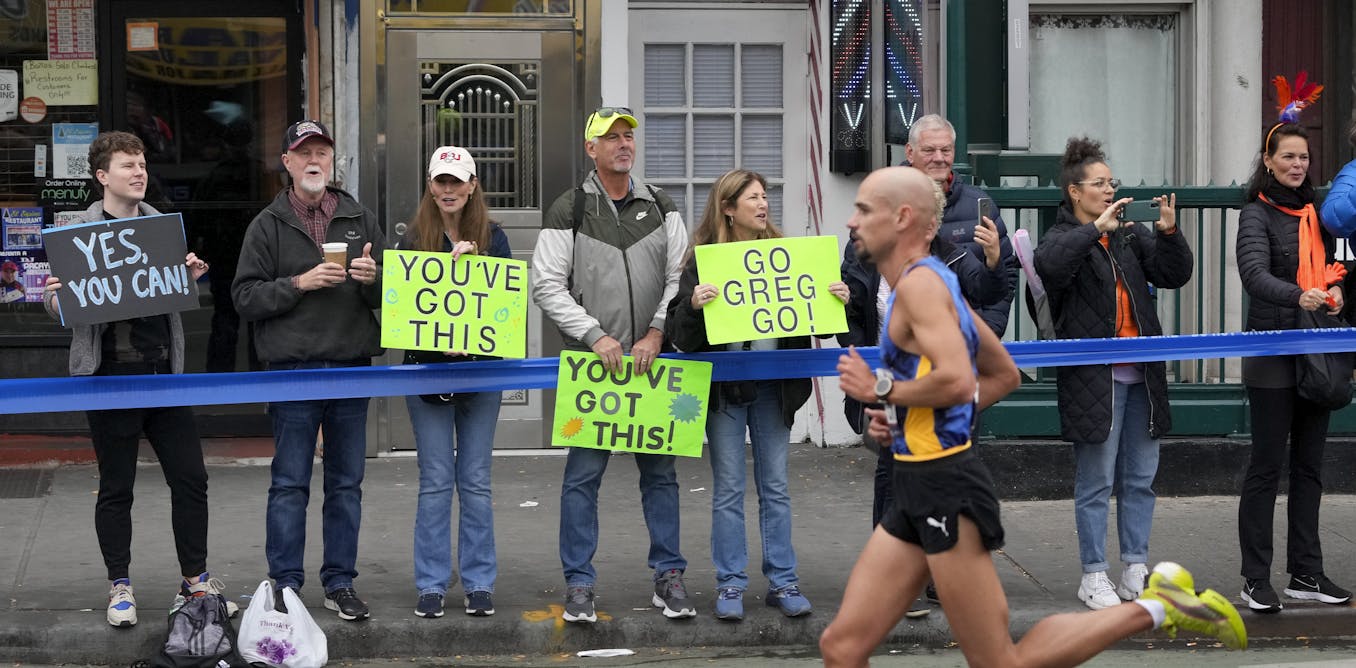
The post “Marathon runners rely on family and experts to succeed, while races rely on passionate volunteers” by Julia Yarkoni, Fellow in Global Journalism, Dalla Lana School of Public Health, University of Toronto was published on 05/22/2025 by theconversation.com






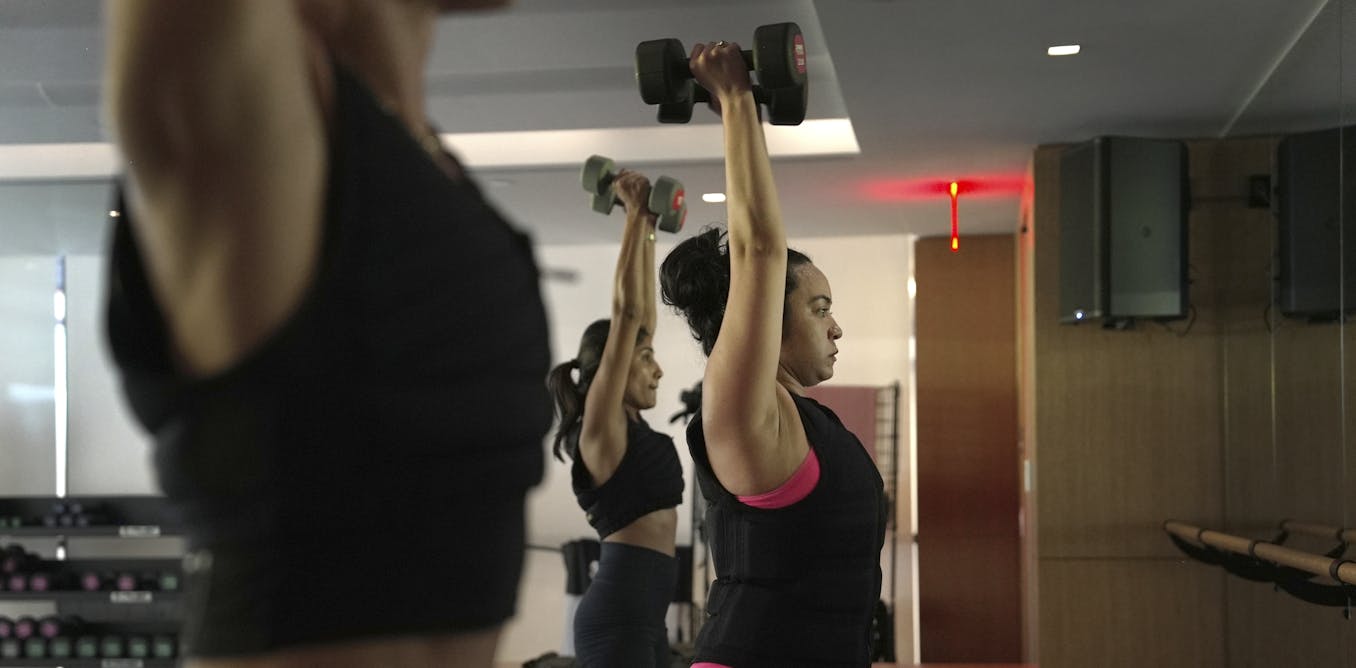
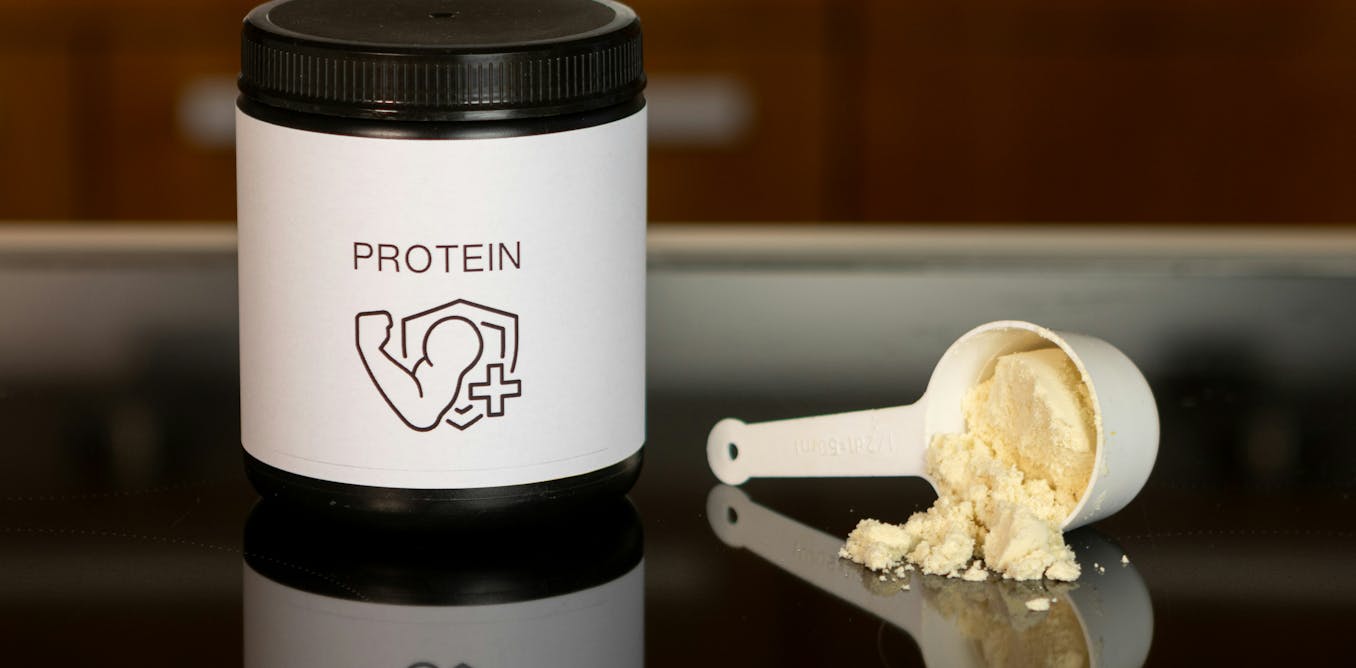


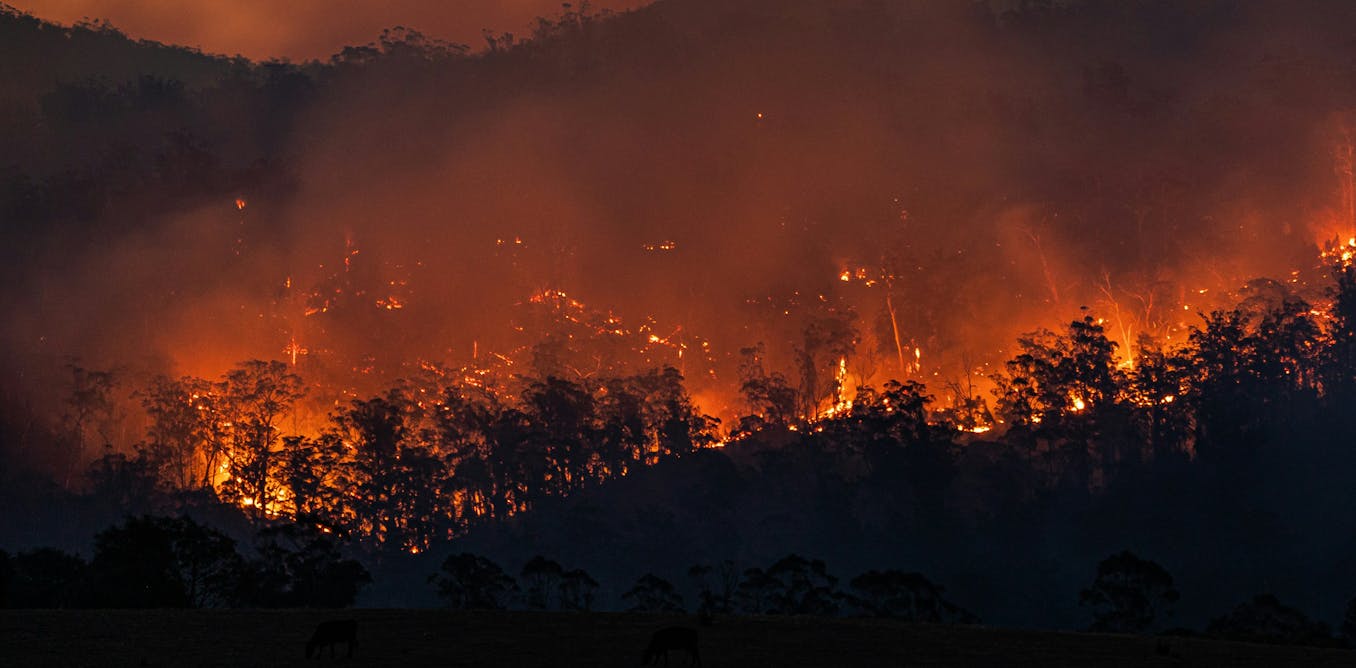
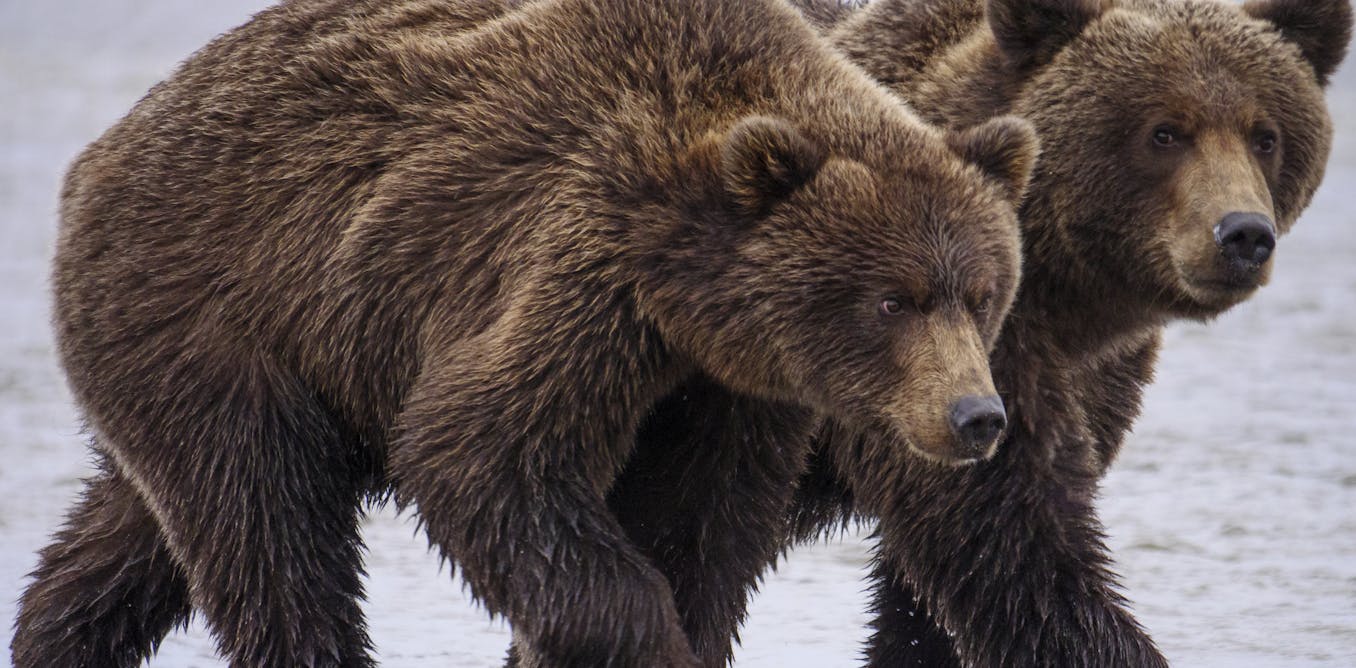





















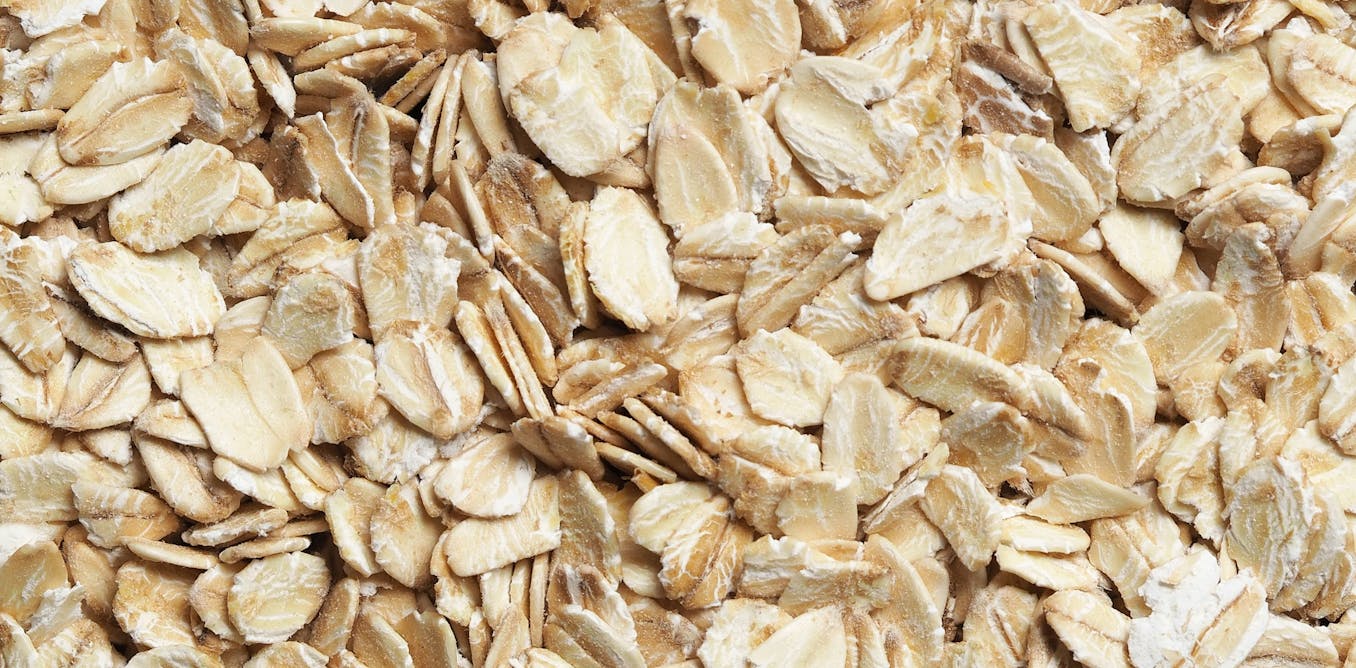



Leave a Reply